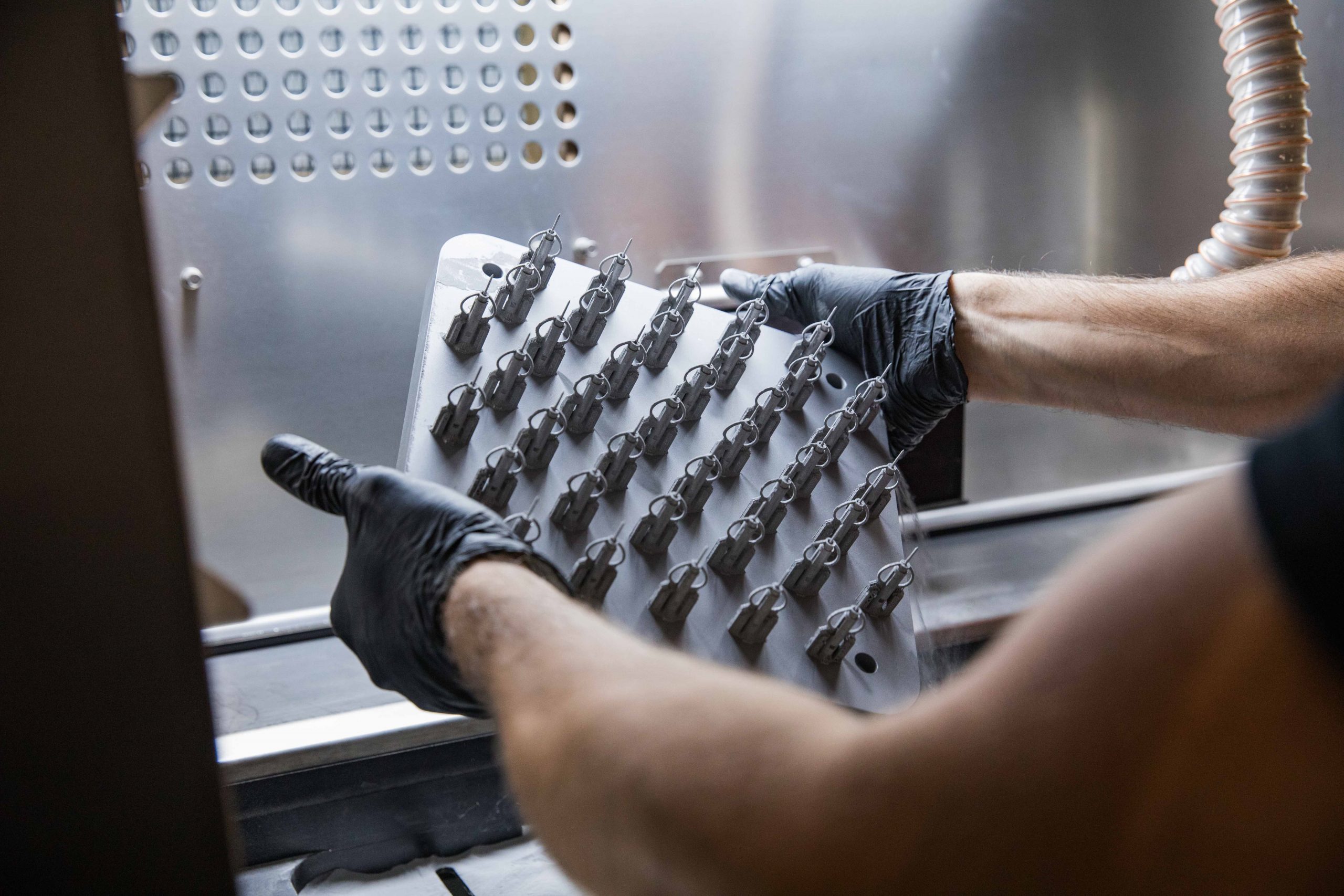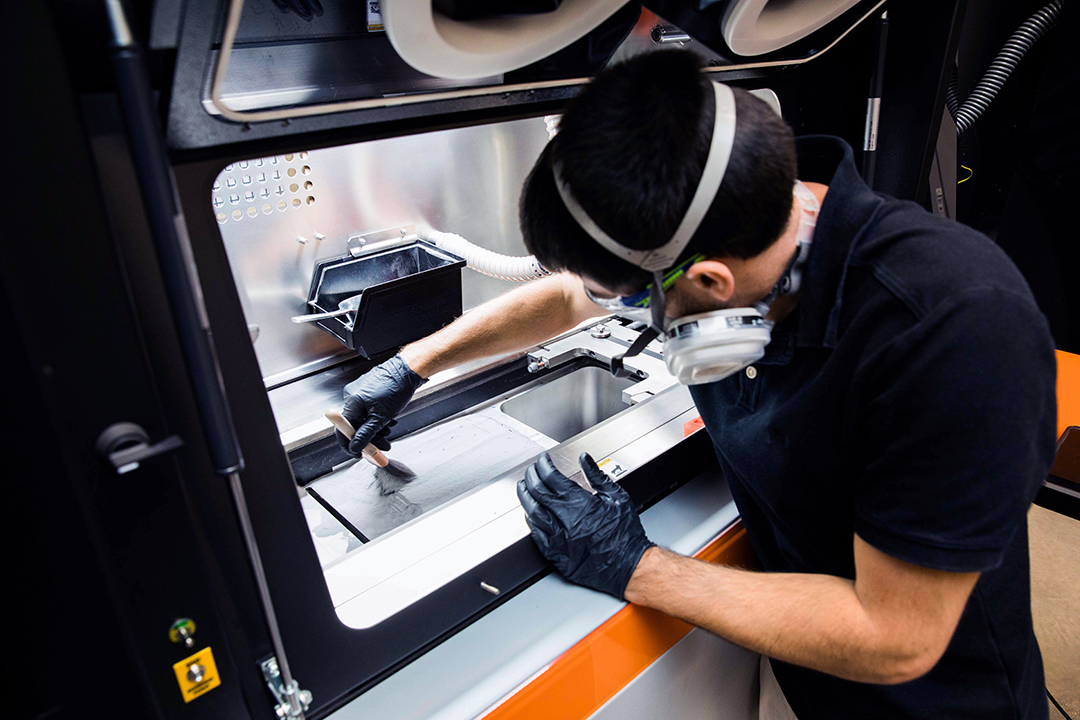On-demand digital manufacturing provider Protolabs has received ‘Qualification of Manufacturer’ certification from DNV GL, a global certification and risk management firm, for its metal additive manufacturing service.
Protolabs is reportedly the first manufacturer using powder bed fusion (PBF) 3D printing to be certified by DNV for meeting the part performance and equipment safety demands of the oil and gas industry.
In particular, the certification applies to the firm’s direct metal laser sintering (DMLS) 3D printing technology with its Inconel 718 superalloy, used to rapidly produce complex geometries for parts that are capable of withstanding exposure to harsh environments typical of the oil and gas sector.
“Trust is, rightly, an important necessity for the oil and gas industry and also the wider energy sector,” said Daniel Cohn, General Manager and 3DP Lead for Protolabs EMEA. “But now assurance can be given with the work we’ve conducted under the keen eye of DNV – the independent expert in risk management and assurance for the sector.
“Audits of our manufacturing facilities and processes prove that we comply with the general demands of the oil and gas industry so we can now move forward with even greater support for the sector as a whole.”

Achieving DNV certification
DNV first began investigating 3D printing and its industrial benefits back in 2014, and published its first additive manufacturing guideline for the maritime and oil and gas industries in 2017. The firm has since established a Global AM Center of Excellence (CoE) in Singapore with the goal of advancing competence in 3D printing qualification, certification and training.
Earlier this year, DNV released a new 3D printing service specification document, DNVGL-SE-0568, aimed at further supporting additive manufacturing in the oil and gas sector.
According to Protolabs, it is among the first manufacturers in the EMEA region to achieve the ‘Qualification of Manufacturer’ certification from DNV. The certification process involved a technical evaluation of multiple probes within the company’s machinery in combination with Inconel 718, both individually and the system as a whole.
Inconel 718 is a high-strength and corrosion-resistant nickel chromium superalloy which, when combined with Protolabs’ DMLS technology, can be used to produce parts with complex geometries that can withstand the harsh environmental demands of the oil and gas sector.
“I am very happy our Global Additive Manufacturing (AM) Technology Center of Excellence was able to support Protolabs to reach this milestone, as the first certified manufacturer using powder bed fusion technology in their additive process,” said Dr. Sastry Kandukuri, Senior Principal Materials Specialist in DNV’s Energy Systems Business Unit. “We look forward to continuing our relationship with Protolabs that gives the assurance and confidence of AM products as their use grows in the oil and gas and energy sectors.”

New levels of assurance
While the certification from DNV provides assurance to customers within the oil and gas sector for its DMLS and Inconel 718 3D printing capabilities, Protolabs hopes that this trust will extend to other technologies and materials it offers.
“We offer a number of metals and plastics for additive manufacturing, each suited to the specific needs of a project,” said Cohn. “We naturally see possibilities in the sector for Inconel 718 but also, in a less extreme temperature range, for Stainless Steel 316L. We also see possibilities with functional polymers in applications where conditions are not so extreme.
“The DNV certification applies to our Inconel 718 but we see it as a testament to our quality process and expect to see that trust extend to our whole offering.”
Looking ahead to the expected initial responses to Protolabs’ new certification, Cohn foresees the 3D printing of spare parts to replace those that were formerly manufactured by molding casts, “but also to look into design possibilities to increase efficiency and create more robust designs for parts such as pumps, valves, components for turbines or sensoring equipment.”
He also believes that the certification will encourage customers to use 3D printing in favor of conventional manufacturing methods as a means to unlocking decarbonisation benefits.
“Additive manufacturing can grow even faster in this way if there is trust in the technology, materials, processes, and in the manufacturing companies themselves,” he added.

Accelerating trust in 3D printing
According to Cohn, the certification from DNV will also benefit the performance of the company’s new 5,000 square meter production facility in Putzbrunn, Germany, slated to increase the company’s production capacity by 50 percent.
The new facility will include a 5-axis milling machine to finish 3D printed parts for high-end applications, and automated finishing, coloring and painting systems. Protolabs plans to move all production departments from its current facility in Feldkirchen to the new site, with its existing technology supplemented by an additional 25 systems.
“We are the world’s fastest digital manufacturer that can provide assurances needed, but a major goal for us is to produce parts even faster and deliver on an even wider envelope of service for our customers,” said Cohn. “When a finished design enters our online ordering platform it goes through a short feasibility check by our expert design team, and then on to be printed.
“The DNV certification will give us the trust needed and the new facility will give us the capacity needed to deliver even more projects in as little as one day.”
Subscribe to the 3D Printing Industry newsletter for the latest news in additive manufacturing. You can also stay connected by following us on Twitter and liking us on Facebook.
Looking for a career in additive manufacturing? Visit 3D Printing Jobs for a selection of roles in the industry.
Featured image shows Inconel 718 parts being removed in preparation for finishing. Photo via Protolabs.



